Advertisement
Closing Of Airport Towers, Like Norwood's, Averted
Resume5/1 Update: The Associated Press reports:
Transportation Secretary Ray LaHood assured lawmakers the Obama administration will prevent the closing of 149 small airport towers and end furloughs of air traffic controllers as a result of legislation passed by Congress, said officials involved in negotiations on the bill. ...
Original post:
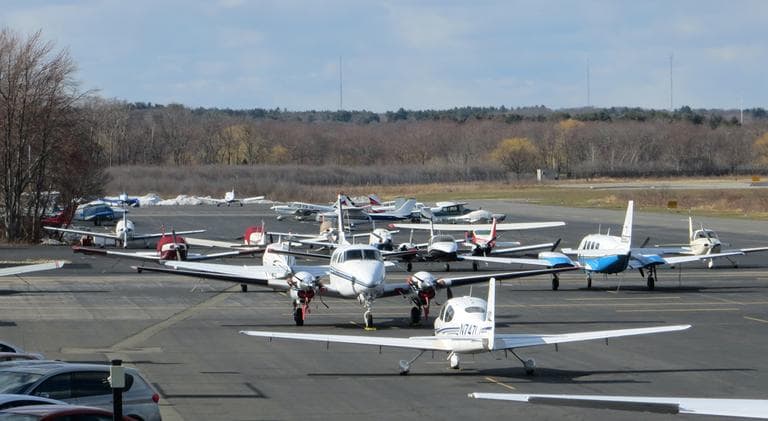
NORWOOD, Mass. — Over the coming weeks and months, the mandatory, across-the-board federal budget cuts known as sequestration will affect spending in every government sector, from military preparedness to medical research.
And for pilots across Massachusetts, it means change is in the air.
On a recent day, gusting winds rattled the flagpole at Norwood Memorial Airport, sending the U.S. and Norwood town flags flapping. The stiff winds were from the southwest — an omen perhaps — as sequestration, conceived in Washington, D.C., takes effect here at Norwood's airport.
Just 100 feet or so from the flagpole is the control tower, where federally paid air traffic controllers help pilots take off and land, as often as 100,000 times a year.
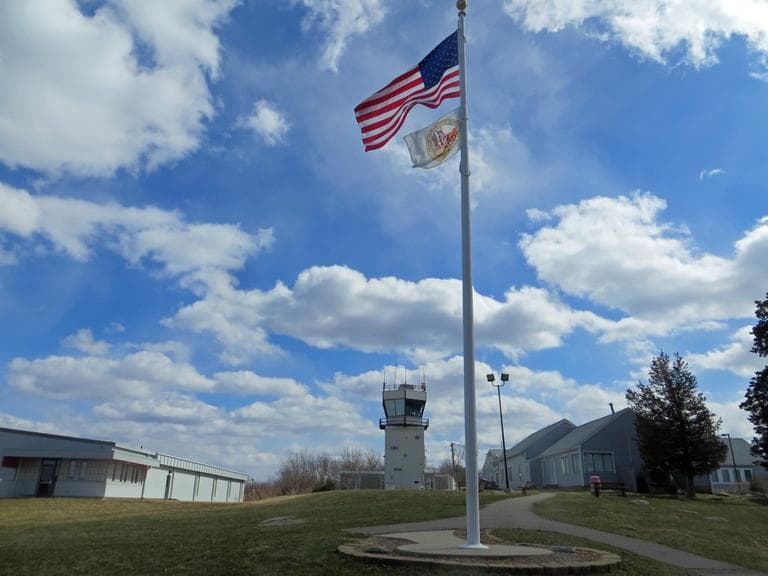
"Norwood is a very busy airport," said Nick Anderson, a flight instructor with Horizon Aviation, based at Norwood Memorial. It's one of five municipal airports in Massachusetts that will shut down its air traffic control tower due to the mandatory federal budget cuts.
"We have four flight schools here. It's a hub for charter service. And local people that want to fly into the area are now not going to have anyone choreograph their arrivals into the area and departures out of the area. It's going to be a lot more of a headache, that's for sure," Anderson said.
The Federal Aviation Administration pays for the six contract controllers at Norwood Memorial and at 250 other airports across the country. In June, a total of 149 towers (PDF) will be closed. Besides Norwood, they include airports in Lawrence, Beverly, New Bedford and Worcester.
The control tower at Barnes Municipal in Westfield was also slated to be shut down but got a reprieve for national security reasons — it's home to the Massachusetts Air National Guard.
"I don't think it's a good idea, no — especially when it comes to flying," Anderson said of the closings. "It's akin to taking the stop signs off the road and the traffic lights off the road. Yes, pilots should be making good decisions, but you could say that every licensed driver should be making good decisions. And we both know that's not always the case."
A red WCVB-TV news helicopter flew in from the south, circled over Norwood's two runways and hovered near the air terminal. Amid the wind gusts, pilot Jason Davis gently set the chopper down.
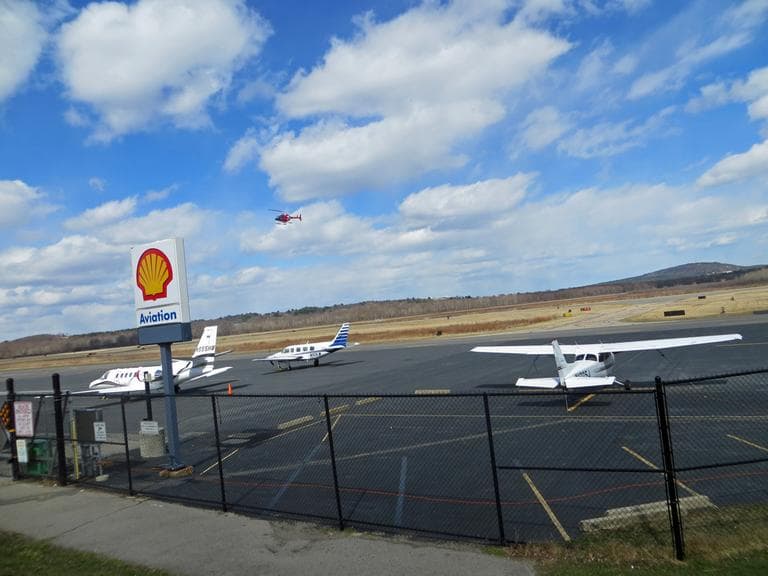
"With the tower shutting down it's going to make things a little more dangerous just because you don't know if everyone is going to be on the same frequency," Davis said. "You don't have the same luxury of being in a controlled airspace. There's always the chance someone comes in and doesn't self-announce. So you just have to watch for a lot more traffic. It makes things more difficult."
The tower at Norwood currently operates from 7 a.m. to 10 p.m., seven days a week. Pilots self-announce over their radios, providing their tail number, location, altitude and intentions.
The FAA was supposed to begin closing control towers on Sunday, April 7, but on Friday they decided to delay that until June. After that pilots flying over the non-controlled airports will use visual flight rules and communicate with each other by radio.
Flight instructor Anderson said that's not a problem on sunny, clear days. "But on days where it's cloudy and we have to fly through the clouds on an instrument flight plan — currently the Norwood tower ground facilities would coordinate a flight release for us, and that's all taken care of. However, with them not being there, we have to contact Boston and make them do it for us and mediate that process," Anderson explained.
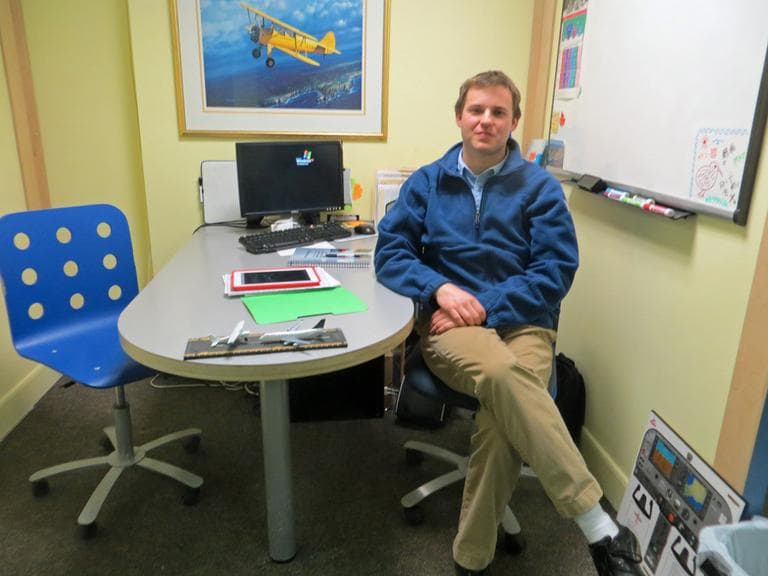
"And that's not just here at Norwood that's also true at all the airports around the area that are going to be closing," he continued. "It's going to cause many delays. It's like going to Walmart and there are 20 cash registers that could be open but only two are open. You're going to have to wait in line, and that's just how it's going to be."
Sixty percent of the U.S. Department of Transportation sequester cuts will be borne by the FAA even though the agency accounts for just 20 percent of the department's budget. The FAA is not granting interviews about sequestration, nor is it saying just how much it is hoping to save by closing the 149 air control towers.
As for the impact on Norwood, a recent state study (PDF) found the airport generates more than $50 million in economic activity a year.
Joe Delaria is general manager of FlightLevel Aviation, the fixed-based operator at Norwood Memorial which sells gas and maintenance services. DeLaria said that while he can't estimate the financial fallout from shutting down the control tower, he predicts it will be big.
"The business will lose — the restaurants, the car rental, the hotels, the Patriots. People come in for the Patriots. Are these people going to decide they're not going to come in because we don't have a tower, because it's too busy here? I mean, it's huge," DeLaria said.
Building an air control tower like the one at Norwood would cost the federal government about $7 million these days. Within 90 days after the towers are shut, all the equipment will be removed and stored. There are no plans to reuse it.
Twenty airports that are scheduled to lose their control towers are suing the FAA, claiming the agency never conducted required safety studies in advance. None of the five airports in Massachusetts have joined that lawsuit.
But the federal government does acknowledge the importance of the towers. The one at Norwood is surrounded by a high chain link fence, barbed wire, a door with a keypad lock and a warning sign that reads, "This facility is used in FAA air traffic control. Loss of human life may result from service interruption."
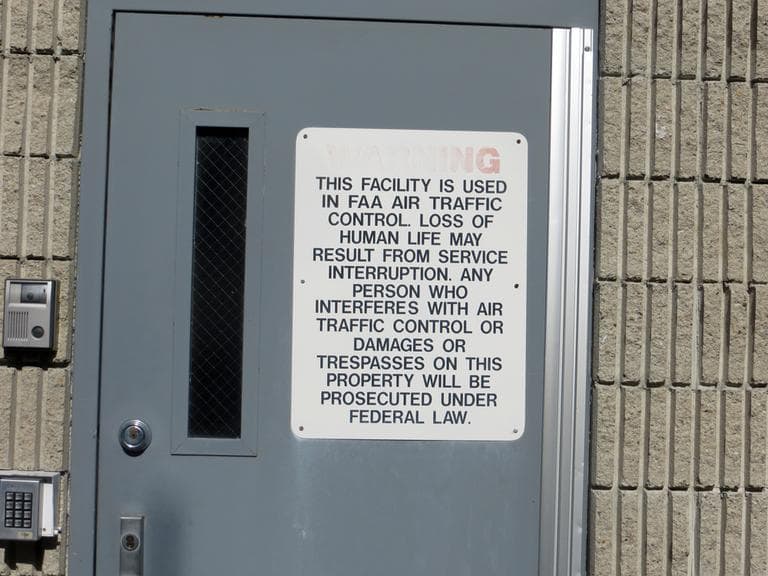
This program aired on April 8, 2013.
